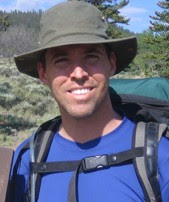Sometimes students ask the most interesting questions at the most inappropriate times. I was recently conducting a “peer review” in a Human Biology class with a colleague who was up for promotion when a student asked an intriguing question: “If we know all this about how the body works, what does that leave for God to do?” Because I work at a university that is owned and operated by a protestant denomination we are able to freely talk about all kinds of issues that are taboo for my colleagues at state universities. The question was a good one; though it was just a bit distracting for a professor being rated on how well he could teach the respiratory system’s ability to carry oxygen. His in-class answer was adequate and the student was satisfied, but after the class I became deeply troubled by the origin of the question.
It seems to me that many religious people place their faith in a God of the unknown rather than in a God who transcends both the known and the mysterious. “If I know how something works there is no need for faith.” The deep problem with this approach is that as science becomes better and better at understanding how the physical universe works, faith and by extension, God, gets placed in a progressively smaller box.
The “God of the unknown” approach works well in a culture where little is known about how things work. In agrarian or hunter-gatherer societies much of what happens is ascribed to the gods or God. His “will” replaces coincidence as the cause for rain, snow, wind, hurricanes, or tornados. On a personal level, God mysteriously controls even the minute events of daily life. There is no room for chance; the unknown is accepted as a matter of faith. More than that, many people ascribe religious value to the unknowable – as if it is the only place for faith.
On some levels I have absolutely no difficulty with faith in the unknown. I, for one, believe in the existence and sovereignty of one Supreme Being – God. I do not think that there must be natural explanations for everything. Some things are mysterious and probably beyond the ability of science to adequately explain: the existence of a soul, the afterlife, a few truly miraculous events and the deeper “why” questions which fall in the realm of philosophy, not science. Apart from these, there are probably very few things that we will not be able to explain at some point in the future.
Perhaps the problem lies more in our lack of aesthetic and spiritual appreciation for beauty in complexity than in the realm of the unknown. The most basic unit of life, the cell, is an amazingly complex, dynamic, synthetic, and mysterious place. However, 25+ years of cellular and molecular biology has begun to chip away at the layers of mystery that wrap the cell in its shroud of faith. We are catching glimpses of how genes work, what regulatory proteins do, and how the structures of the living cell are altered in response to changes in the environment. If we could see the interconnected network of cellular responsiveness as a living work of art declaring the intelligence and foresight of a seemingly random designer, perhaps we could come to grips with the scientist who holds back the veil long enough to catch a glimpse of the glorious complexity which lies beyond. Perhaps, in knowing, we might also sense the inexplicably spiritual.
Thursday, June 5, 2008
Subscribe to:
Post Comments (Atom)

No comments:
Post a Comment